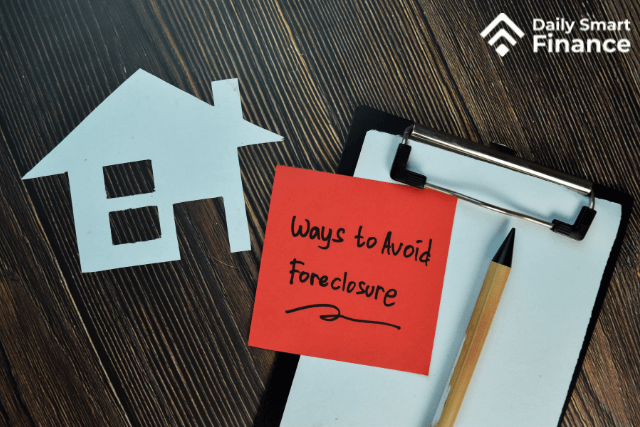When it comes to purchasing a home, the process can frequently be tedious and time-consuming… But, there are a few things that you can do to quicken the process and increase the probability of your success.
Get pre-approved for a mortgage.
Getting pre-approved for a mortgage is one of the best things you can do. This will demonstrate to sellers that you are serious about purchasing a property and will aid in the negotiation process. Contacting your bank or a mortgage broker and providing them with information about your income, assets, and debts is the first step. They will then give you a letter outlining the amount of money they are willing to lend you. The next step is to look for a property that you want to buy. Once you’ve found a property, you must give your lender an offer to purchase the property and an appraisal. If your offer is accepted, you must ask your lender for a loan and an Agreement Letter. The conditions of your loan are also specified, along with the interest rate and regular payments. Finally, the loan will be completed and you will become the legal owner of the property. Furthermore, getting pre-approval gives you a better idea of how much you can afford and allows you to look for the best mortgage rate. As a result, putting forth the effort to obtain a mortgage pre-approval can save you time and money in the long run.
Work with a real estate agent who specializes in your desired area.
Being a homeowner is a significant life achievement that involves many crucial choices. So when looking for a home, it’s critical to work with a real estate agent who specializes in the area you want to live in. They’ll have the most up-to-date information on what’s available and can answer any questions you have about the area. They must also diligently listen to your specific needs and desires, be knowledgeable about your local market, and guidance on pricing, neighborhood trends, and other topics. Finding the ideal real estate agent is an important step in ensuring a successful and easy home purchase. Here’s a rundown of what to plan when working with a real estate agent:
- Arrange a consultation to discuss your requirements and desires.
To get the most out of your meeting with a real estate agent, you should first consider your specific needs and wants. This will help you find an agent who is a good fit for your needs and have a successful consultation. As soon as you have a clear understanding of what you require, you should start making contact with local real estate agents. Your first step should be to either solicit recommendations from those you know and trust or conduct an online search for real estate agents who focus on the type of property you’re looking to purchase. After narrowing your search to a handful of agents, it’s time to get in touch with them and set up a meeting. In order to determine if the agent is a good fit for you, it is important to ask many questions during the meeting. Contemplate what you learned from the consultation carefully before deciding if you will let them affect your decision-making process. - The agent will show you houses that meet your requirements.
When working with a real estate agent, it is critical to have realistic expectations from the beginning. Once you have communicated your desired outcome clearly, your agent will be more likely to show you a variety of homes that meet your general criteria. To avoid disappointment, be specific about the type of home you want and the must-have features on your Wishlist. You can help your agent show you homes that are a good fit by being clear about your needs from the start. With the assistance of a real estate professional, you can find the perfect home with little effort on your part. - Once you’ve found a home you like, the agent will assist you in negotiating a fair price.
When you locate a property that interests you, the real estate agent will assist you in negotiating a lower purchase price. The agent will negotiate on your behalf, taking into account your budget and the property’s market value. If the seller is unwilling to lower the asking price, the agent may offer other commitments, such as a higher commission or lower closing costs. The ultimate goal is to come to an agreement that is acceptable to both parties. - Once an offer has been accepted, the agent will assist with the paperwork and final details.
The agent will draft a sales contract and coordinate the closing details once the deal is finalized.
The prospective buyer will also receive assistance from the real estate agent in completing the paperwork required to make an offer on a house. After the buyer’s offer has been accepted, the agent will assist them with the final details and any paperwork that is necessary. - Finally, they will assist in scheduling necessary inspections and walkthroughs.
The agent will assist the buyer in making arrangements for a home inspection and will negotiate the terms of any necessary repairs. When all of the paperwork has been processed, the date for the closing of the transaction will be set. At the closing, the agent will be present to make sure that everything goes off without a hitch and to answer any questions that may arise. It’s just a matter of waiting for the keys to your new home at this point.
Working with a knowledgeable real estate agent can make the home-buying process far less stressful. You can also ask for referrals and look for agents who are certified.
Walk away from a bad deal.
When buying a house, it is essential to remember that you do not have to settle for anything less than ideal. You should be able to find a property that satisfies all of your needs and desires, as there are many available. If a seller or real estate agent is pressuring you to make an offer on a new house you’re not interested in, don’t be afraid to walk away. It is preferable to wait for the best deal than to purchase a house that does not meet your requirements. It is essential to have a thorough understanding of your financial situation and your budget. Second, you should be aware of the potential risks associated with contract cancellation, such as the possibility of losing your deposit. Before making a decision, it is important to evaluate the deal’s advantages and disadvantages. If you can walk away from the bad deal without incurring substantial financial losses, it may be your best option.


